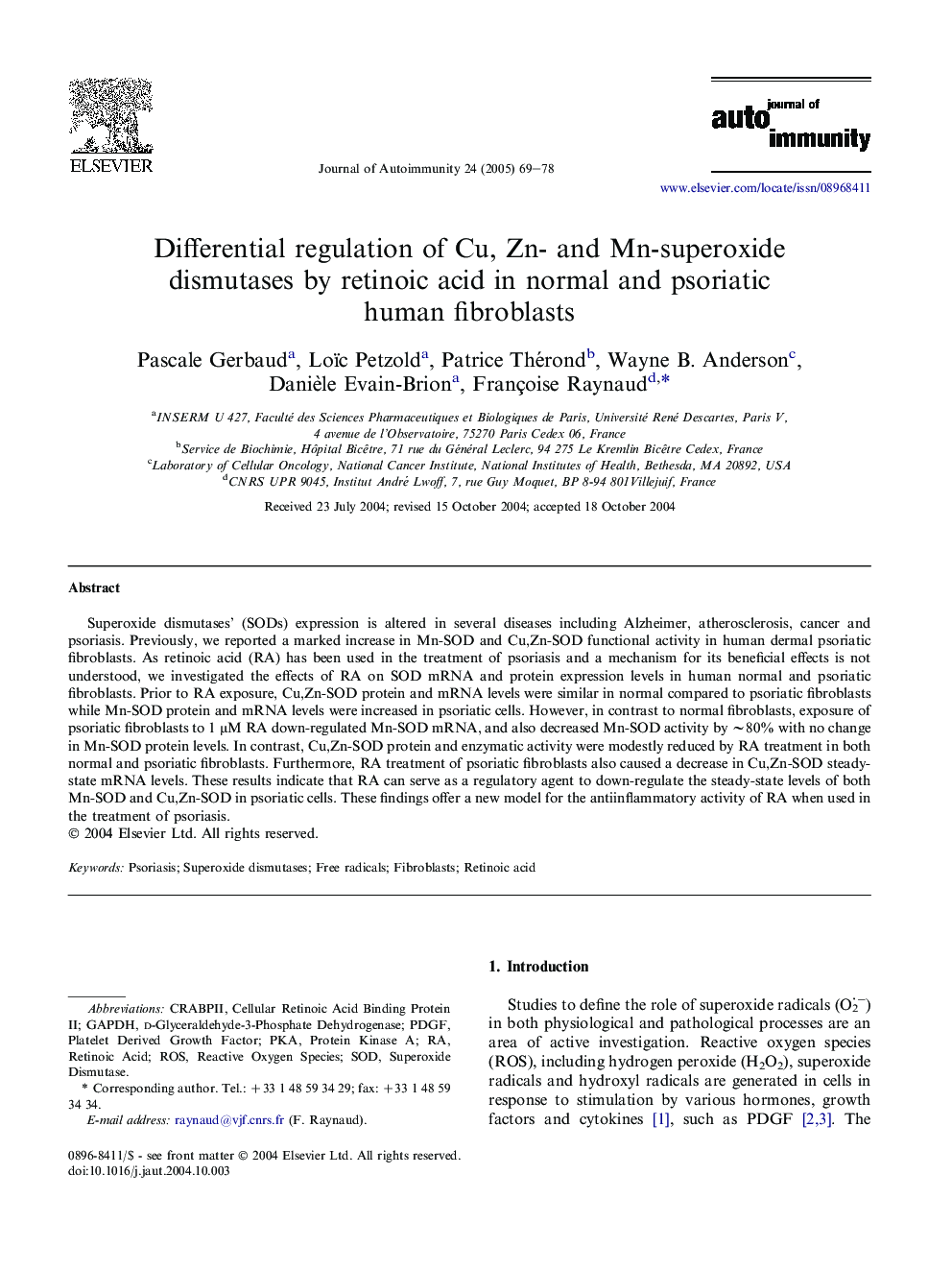| Article ID | Journal | Published Year | Pages | File Type |
|---|---|---|---|---|
| 9267836 | Journal of Autoimmunity | 2005 | 10 Pages |
Abstract
Superoxide dismutases' (SODs) expression is altered in several diseases including Alzheimer, atherosclerosis, cancer and psoriasis. Previously, we reported a marked increase in Mn-SOD and Cu,Zn-SOD functional activity in human dermal psoriatic fibroblasts. As retinoic acid (RA) has been used in the treatment of psoriasis and a mechanism for its beneficial effects is not understood, we investigated the effects of RA on SOD mRNA and protein expression levels in human normal and psoriatic fibroblasts. Prior to RA exposure, Cu,Zn-SOD protein and mRNA levels were similar in normal compared to psoriatic fibroblasts while Mn-SOD protein and mRNA levels were increased in psoriatic cells. However, in contrast to normal fibroblasts, exposure of psoriatic fibroblasts to 1 μM RA down-regulated Mn-SOD mRNA, and also decreased Mn-SOD activity by â¼80% with no change in Mn-SOD protein levels. In contrast, Cu,Zn-SOD protein and enzymatic activity were modestly reduced by RA treatment in both normal and psoriatic fibroblasts. Furthermore, RA treatment of psoriatic fibroblasts also caused a decrease in Cu,Zn-SOD steady-state mRNA levels. These results indicate that RA can serve as a regulatory agent to down-regulate the steady-state levels of both Mn-SOD and Cu,Zn-SOD in psoriatic cells. These findings offer a new model for the antiinflammatory activity of RA when used in the treatment of psoriasis.
Keywords
Related Topics
Life Sciences
Immunology and Microbiology
Immunology
Authors
Pascale Gerbaud, Loïc Petzold, Patrice Thérond, Wayne B. Anderson, Danièle Evain-Brion, Françoise Raynaud,
